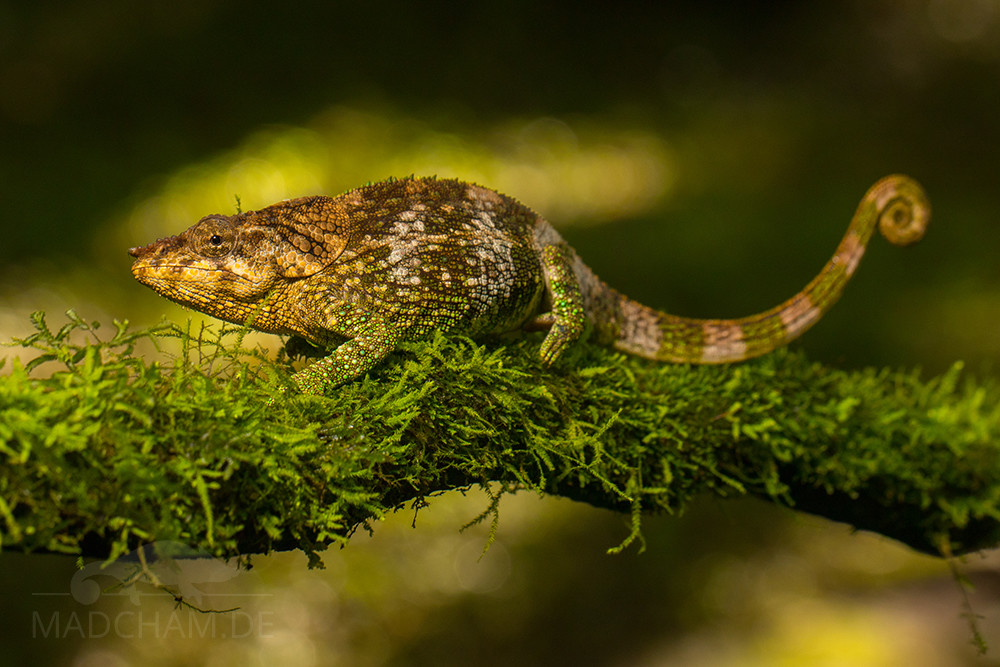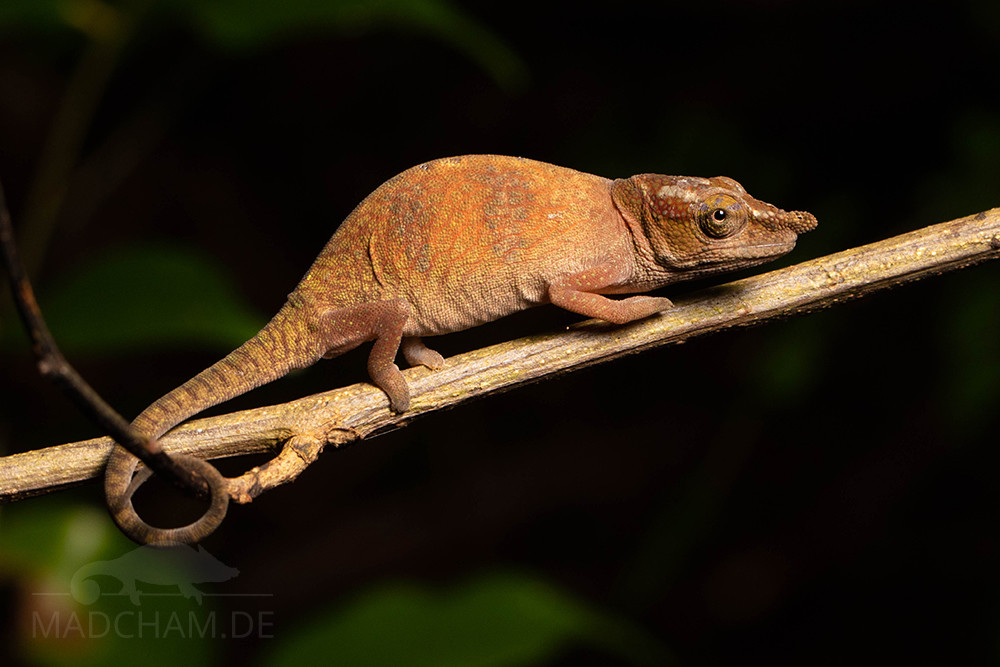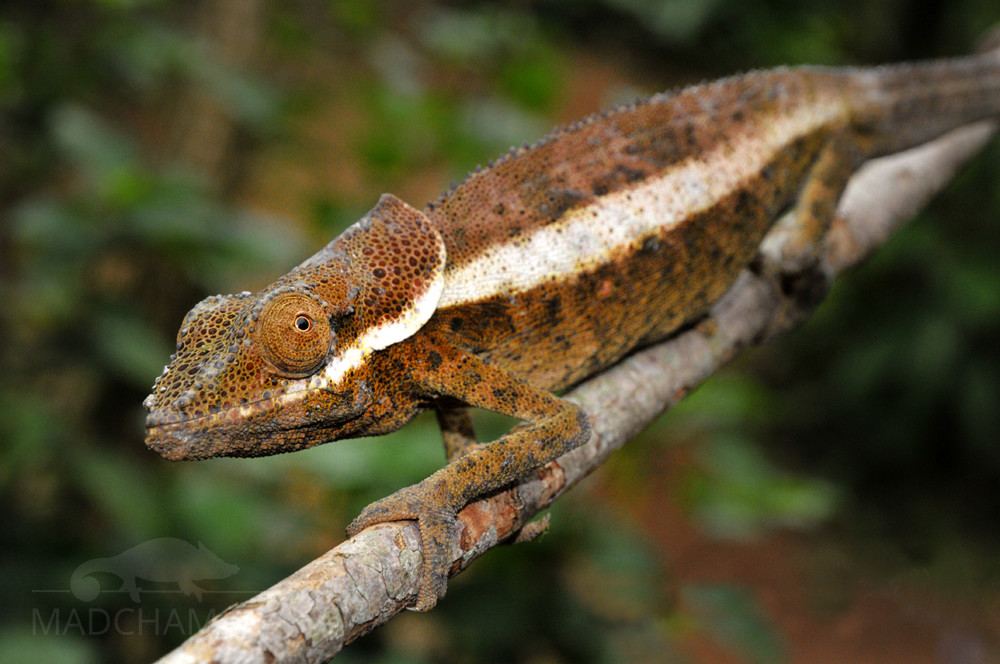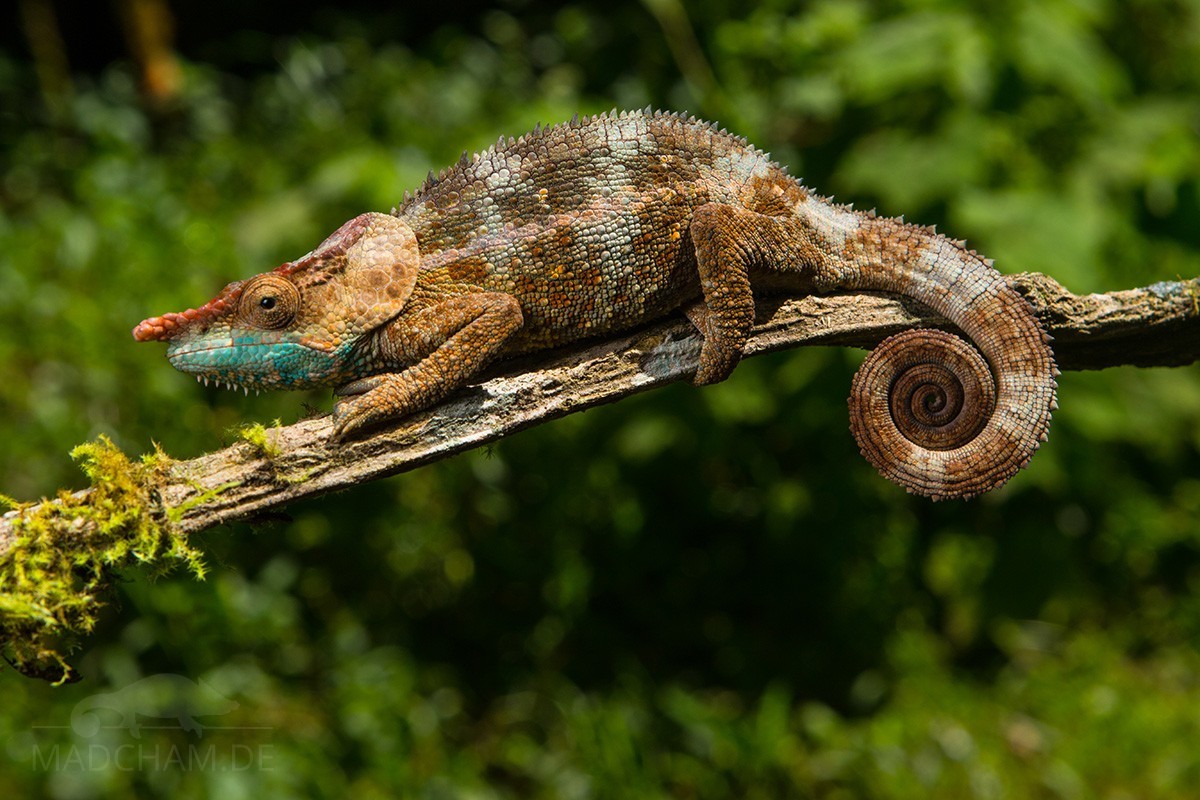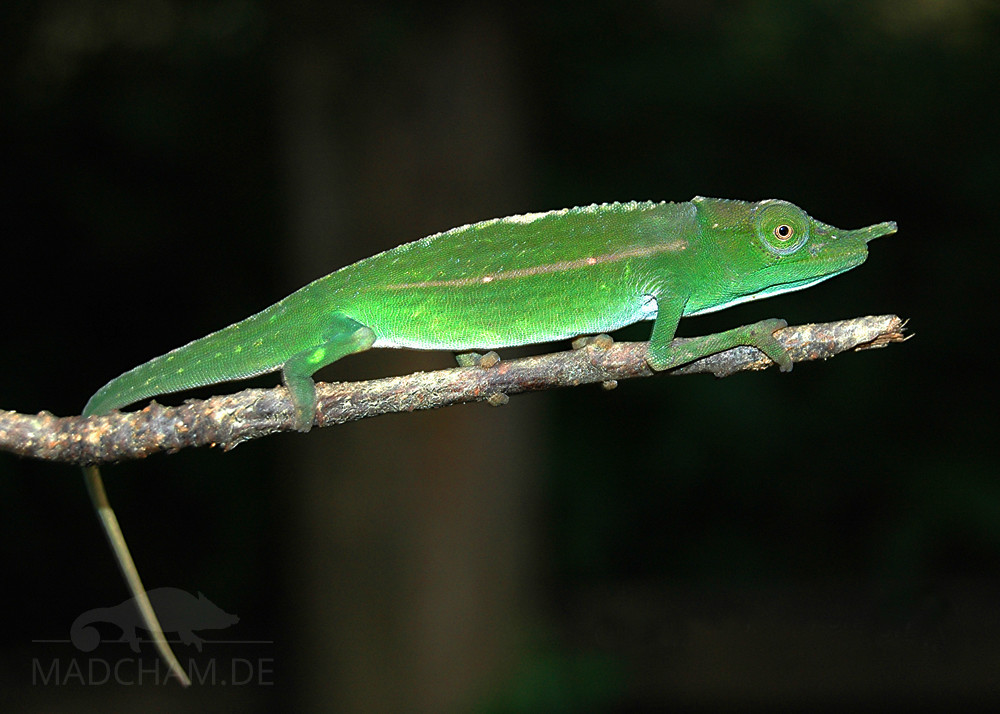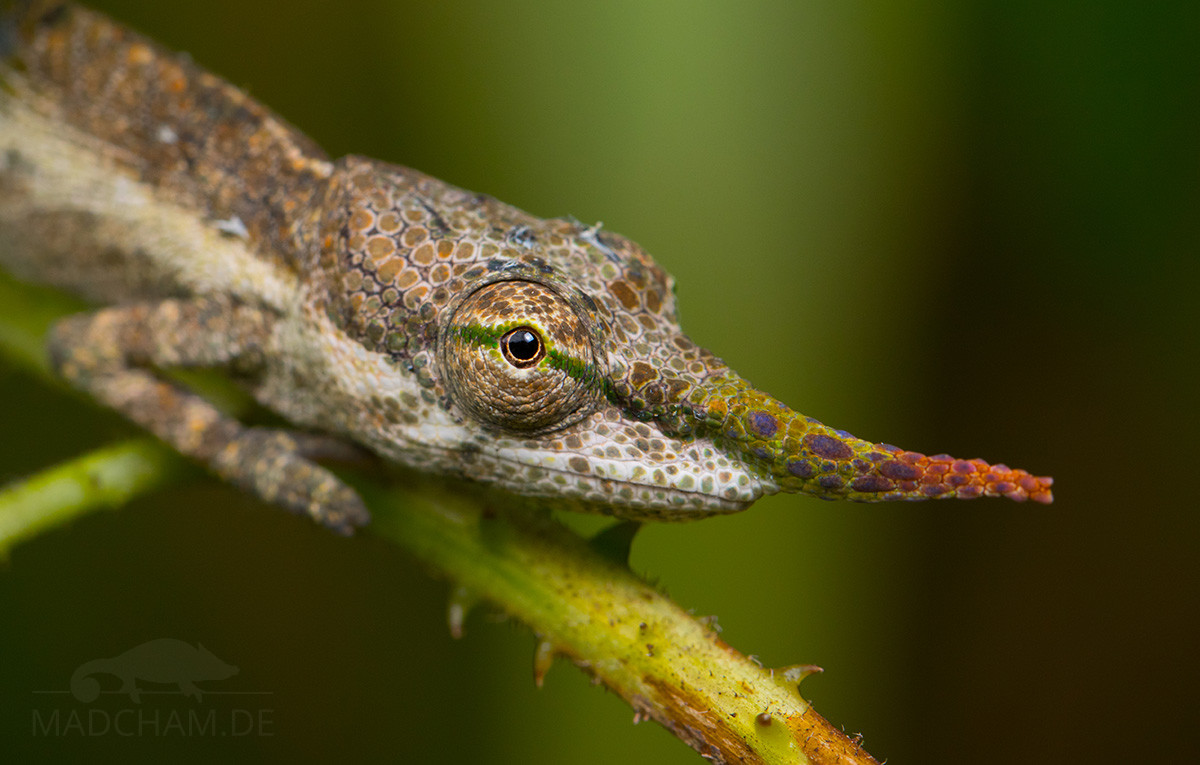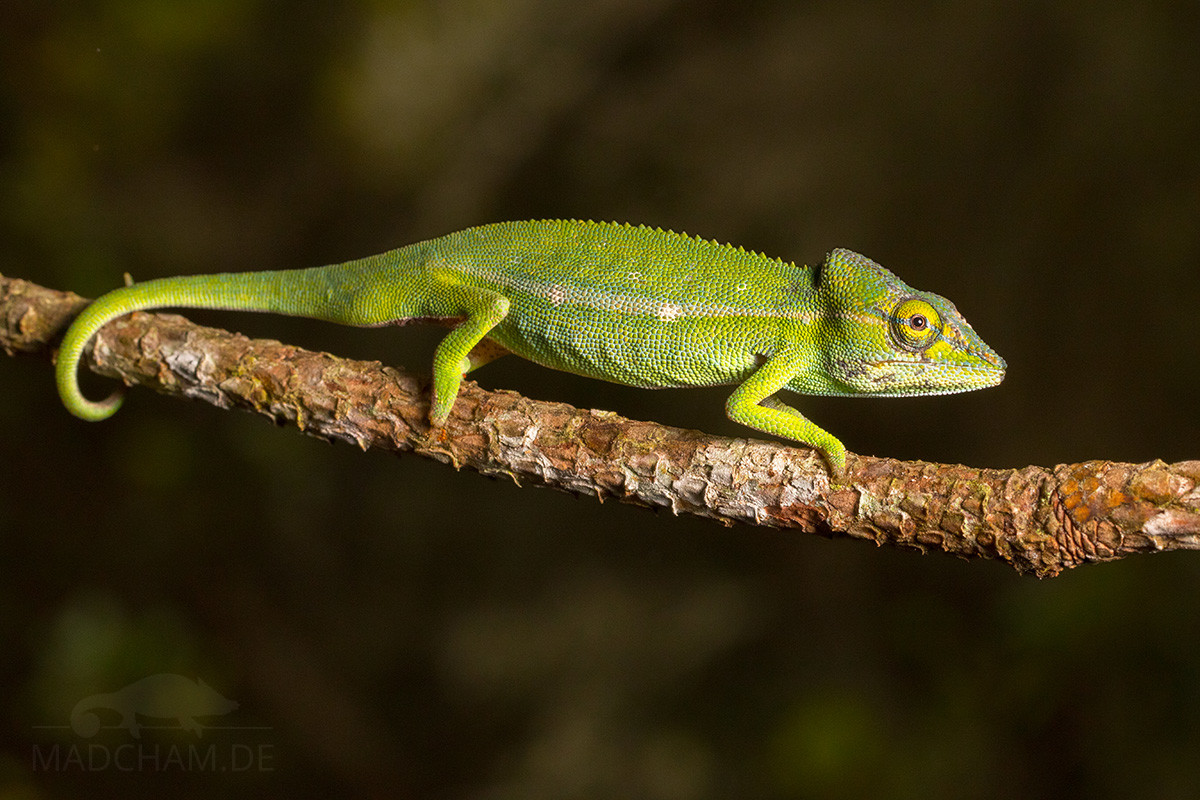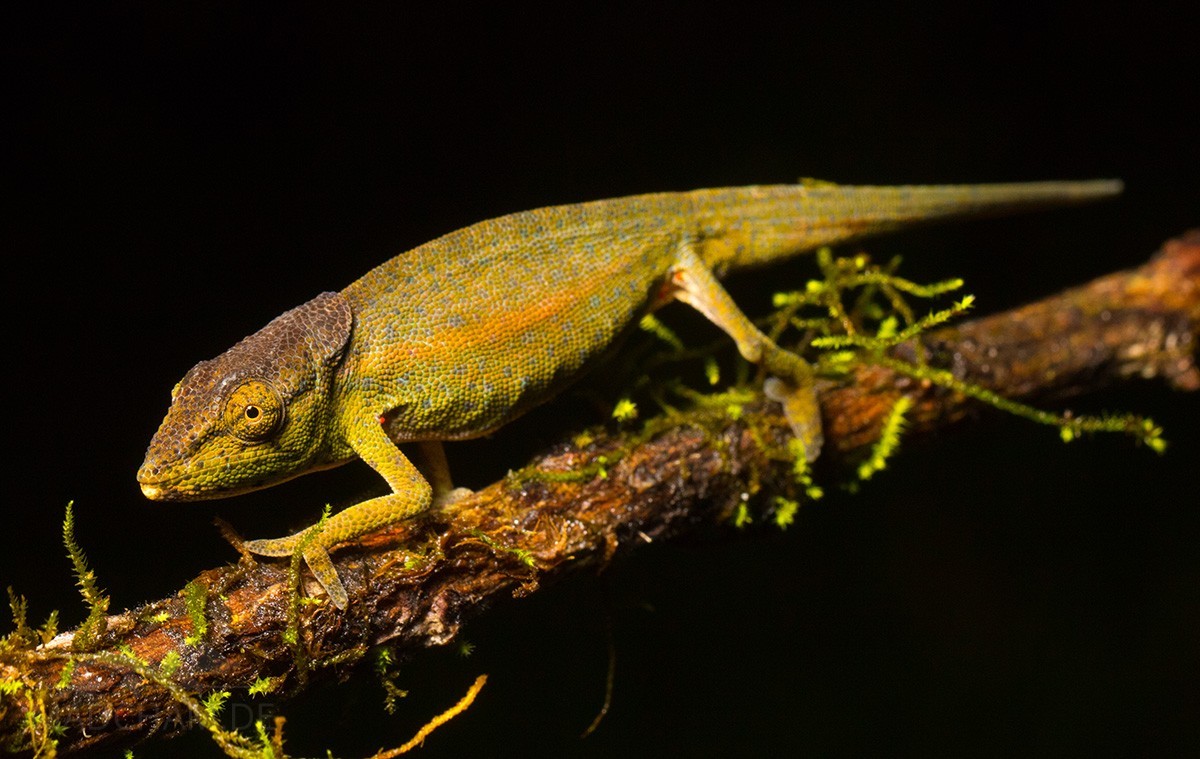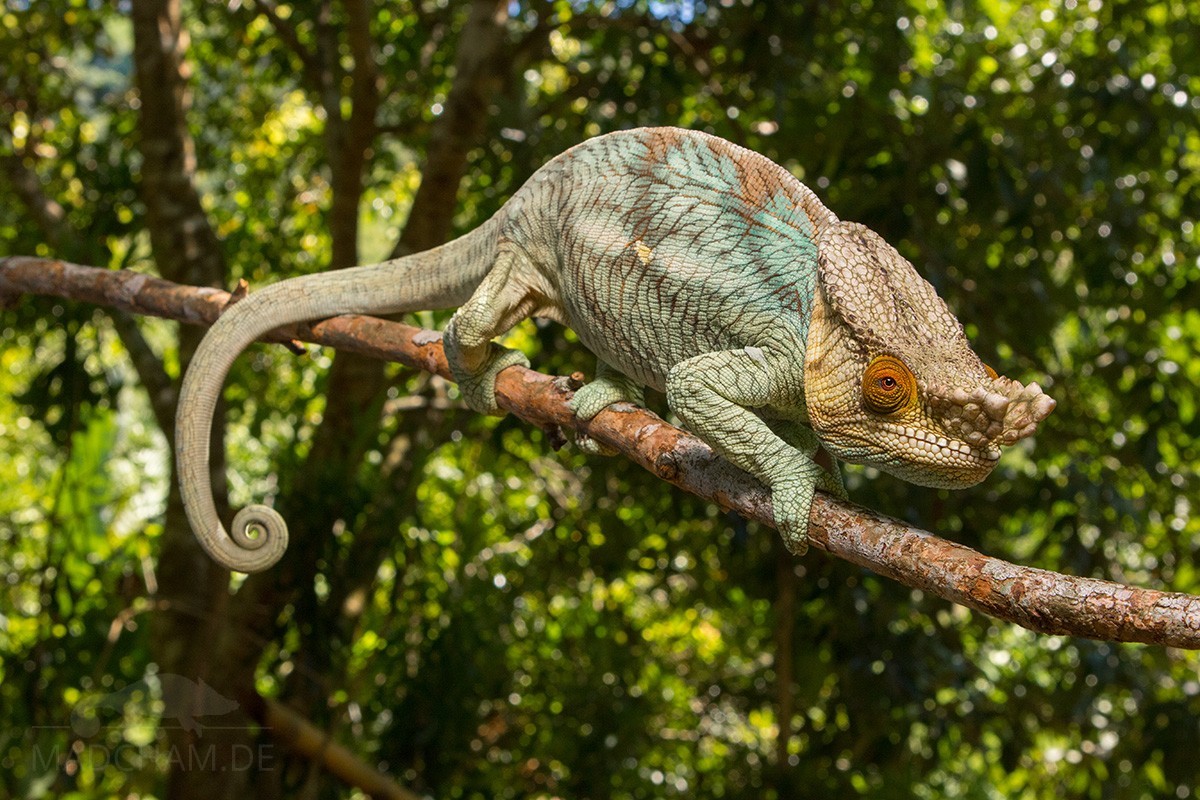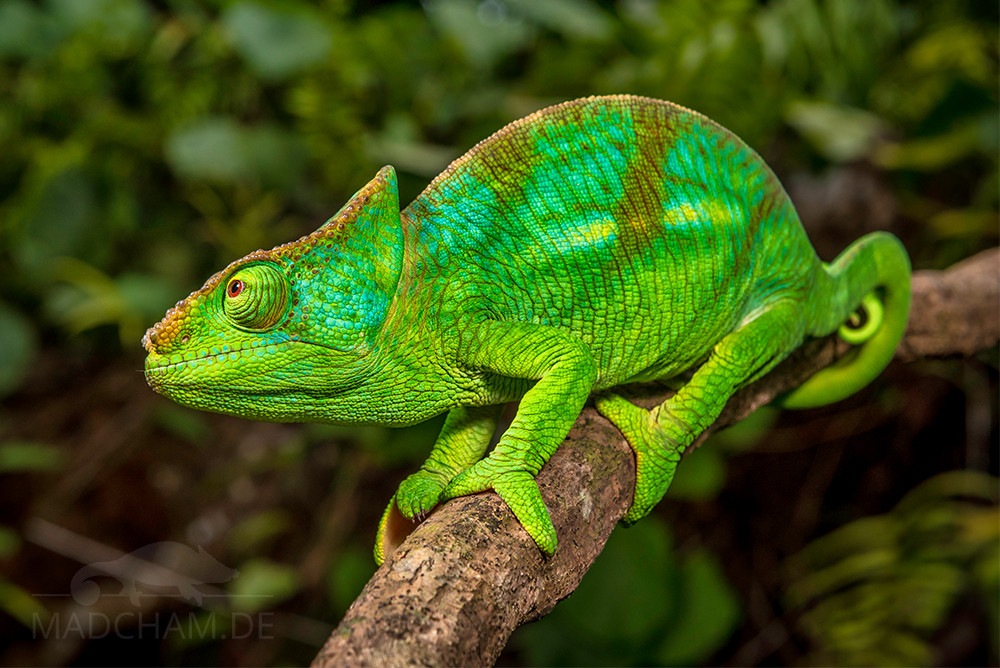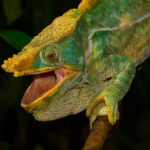Calumma amber
First description: Raxworthy & Nussbaum, 2006 Origin of the species name: Christopher J. Raxworthy from the American Museum of Natural History, New York (USA) and Ronald A. Nussbaum from the University of Michigan, Ann...
Calumma boettgeri
First description: (Boulenger, 1888) Origin of the species name: The Belgian zoologist George Alber Boulenger, at that time working at the Natural History Museum in London (Great Britain), named this chameleon species in honor...
Calumma cucullatum
First description: (Gray, 1831) Origin of the species name: The English zoologist John Edward Gray was very brief in his description of this chameleon species: it consists of just keywords instead of a coherent...
Calumma crypticum
First description: Raxworthy & Nussbaum, 2006 Origin of the species name: Christopher J. Raxworthy from the American Museum of Natural History, New York (USA) and Ronald A. Nussbaum from the University of Michigan, Ann...
Calumma furcifer
First description: (Vaillant & Grandidier, 1880) Origin of the species name: The French zoologists Léon Louis Vaillant and Guillaume Grandidier worked together in the French Zoological Society on various publications. They named this chameleon...
Calumma gallus
First description: (Günther, 1877) Origin of the species name: The German zoologist Albert Carl Ludwig Gotthilf Günther, then Director of the Zoological Department of the Natural History Museum of London (Great Britain), described this...
Calumma gastrotaenia
First description: (Boulenger, 1888) Origin of the species name: The Belgian zoologist George Alber Boulenger, at that time working at the Natural History Museum in London (Great Britain), probably named this chameleon species after...
Calumma glawi
First description: Böhme, 1997 Origin of the species name: The German herpetologist Wolfgang Böhme, former head of the section for herpetology of the Museum König in Bonn (Germany), named this chameleon species in honor...
Color variation “orange eye”
Distribution: Parson’s chameleons of the color variation “orange eye” occur in several areas of Madagascar’s east coast in a region between 50 km south of Toamasina (Tamatave) and Mananara. We want to introduce you...
Color variation “green giant”
Distribution: Masoala National Park is located on the peninsula of the same name in north-eastern Madagascar. At the northern end of Antongil Bay, also known as the “Cradle of Whales”, lies the small coastal...

